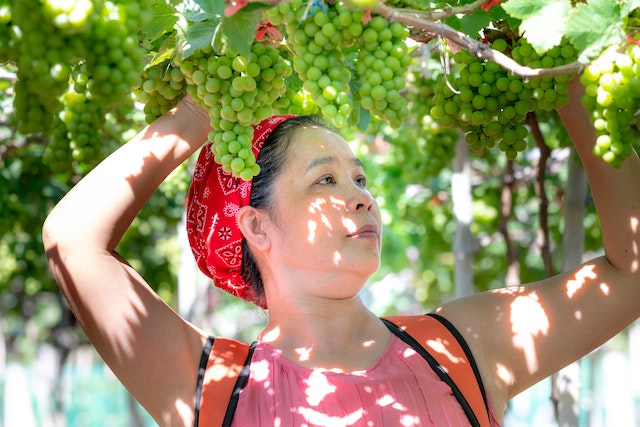SIANI explored the theme of the World Food Forum from the perspective of healthy, nutritious, and sustainable snacks in a virtual side event. SIANI, WWF Sweden Youth and the Government of Sweden hosted the webinar.
A recent study published in 2022 finds that snacks are increasingly replacing standard meals, and there is a growing demand for ‘functional snacks.’ This suggests a rising market need for snacks that are healthy and provide nutritional value – especially among younger generations. This trend implies that our future snacks must be sustainably produced – from a social, environmental, and economic perspective – if we want to foster healthy diets and a healthy planet. Four entrepreneurs and researchers shared their stories and ideas on how young people have a role in the future healthy snacking industry, presented below. The side event focused specifically on how young entrepreneurs could enter this growing snacking industry, meet consumers’ demands and do so sustainably. Four entrepreneurs and researchers shared their stories and ideas on how young people have a role in the future healthy snacking industry, presented below.
Providing local employment for youth and women
The growing youth unemployment was one of the driving forces behind the development of Reelfruit in Nigeria. The healthy dried fruit snacks company created by Affiong Williams has offered training to hundreds of youths, creating jobs both in urban and rural areas in Nigeria. The value of youth was equally important for Robert Musundire, Professor at the Directorate of Research and Postgraduate Studies at the Chinhoyi University of Technology. His research on edible insects as snacks targets youth and women. It investigates ways of offering training and a more structured job market for those collecting and processing insects for consumption.
Pernilla Ivarsson, Minister Counsellor and Deputy Permanent Representative to FAO highlighted the essential part youth inclusion plays in Sweden’s and the EU’s strategic plans. The EU agriculture policy for 2023-2027 contains initiatives to help youth enter the sector, as well as support for developing new and innovative ideas, such as start-up grants, income support, and benefits like additional training and innovation support. The Swedish FAO Committee also emphasizes the importance of youth for a sustainable transformation of food systems. This endeavor is, for instance, explained in the publication Towards 2030 – sustainability as the business case for agriculture and forestry. The Swedish government has identified the inclusion of youth in policymaking as one of the important cornerstones for the transformation of food systems. “The opportunities are provided by politicians and the ideas provided by youth,” emphasized Ivarsson.
Customer demands and changing diets
The growing demand for more healthy and sustainable snacks is apparent. But how has consumption among communities changed? Dorah Momanyi, founder of the Nutritious Agriculture Network still witnesses cheaper and unhealthier food being the major and frequently the only options for citizens with lower incomes in Kenya. The transformation is happening in the middle and upper-income populations with a growing awareness to change eating habits. This change in demand has resulted in a rapid shift in the production of snacks, where more alternatives are produced.
The use of indigenous grains is a part of this change. The work to increase knowledge around indigenous grains is an integral piece of the Nutritious Agriculture Network in Kenya. The new generation is part of the work to bring back “lost crops” according to Dorah Momanyi. Millennials and zoomers want to get indigenous grains back in a “fashionable way”. One way has been through puffed snacks made out of indigenous grains such as sorghum, millet, and amaranth which the Nutritious Agriculture Network produces under the iPop Africa brand.
The work of changing diets does not always originate from consumer’ demands. Sometimes the form of a product can help influence potential costumers’ perceptions and acceptance. Creating healthy bars made out of insects is one way to reduce the fear of eating them. Professor Robert Musundire found new ways of consuming these protein-packed treats. “Making it [insects] more appealing has been important in this work”, explained Musundire.
Business models for a healthy diet and a healthy planet
The vision of a “healthy diet, healthy planet” has generated new business models. Anna Hovhannisyan, the founder of Chir’s House in Armenia, created a small dried-fruit production facility that follows a circular economy model that strives to minimise the use of resource inputs and the formation of waste, pollution, and carbon emissions. The facility also has its own solar energy system that works within the circular economy model. Affiong Williams in Nigeria uses parts of the fruits that would otherwise be wasted, adding value to fruits at all levels of the value chain.
These are just some of the ways business models can ensure sustainability. The businesses of the young entrepreneurs also work from the ground level, and collaboration with farmers is an essential part of their work. Hovannisyan emphasized the importance of being a role model. The business works as a place where the whole community can meet and learn from each other. Williams also highlighted that the relationship with farmers should be a symbiotic one. Investing in farmers and ensuring their needs are met strengthens trust between the company and farmers, and makes farmers more inclined to work with the company. The relationship between farmers and companies is built to last long term, explains Williams.
Watch the full recording of the seminar below.
Written by Nathalia Grandon, SIANI Intern
